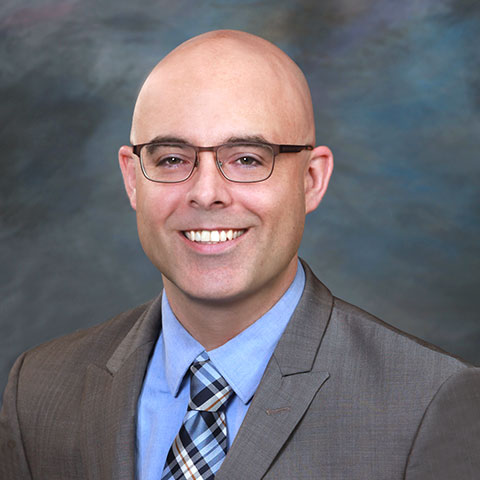Supporting the Next Generation of Neuroscientists at Boys Town’s New Pediatric Center for Brain Health
Thursday, March 3, 2022
Boys Town National Research Hospital received a $12.5 million COBRE (Center of Biomedical Research Excellence) grant from the National Institute to develop the next generation of neuroscientists…but the outcome this will have on pediatric neurological, mental, and behavioral health is priceless.
Meet Our Researchers

Gaelle Doucet, Ph.D.
Brain Architecture, Imaging and Cognition Laboratory
Dr. Doucet’s research aims to identify the role of all major brain networks in everyday life throughout the lifespan and how their functions change with aging. Her lab is studying how the brain adapts from adolescence to late adulthood, as well as why some individuals will develop mental disorders and whether we can predict or prevent the start of disorders.

Elizabeth Heinrichs-Graham, Ph.D.
Cognitive and Sensory Imaging Laboratory
When performing cognitive and language tests, some children with hearing loss perform at or above the level of their normal-hearing peers, while others fall behind. Dr. Heinrichs-Graham’s lab uses brain imaging coupled with behavioral and audiometric testing to investigate the impact of mild-to-severe hearing loss, as well as the quantity and quality of therapeutic intervention, on brain, language, and cognitive function through development, with the ultimate goal of learning how we can optimize performance for all children who have hearing loss.

Brittany Taylor, Ph.D.
Neurodiversity Laboratory
About half of homes in eastern Nebraska and western Iowa test high for radon, a naturally occurring gas that builds up in homes and other buildings and is linked to the development of certain cancers in adulthood. Despite the known long-term consequences of radon exposure, the impacts on developing children are poorly defined. Dr. Taylor uses structural and functional neuroimaging, cognitive testing, and measures of health and inflammation to explore how home radon exposure impacts brain development in kids.

Stuart White, Ph.D.
Developmental Clinical Neuroscience Laboratory
Dr. White’s lab works with healthy teens and youth who have serious emotional and behavioral problems (aggression, emotion regulation problems, impulsivity and other mental health/ behavioral problems) and/or exposure to traumatic events. He uses brain imaging and measures of endocrine function (hormones) to understand how changes due to puberty impact the neural systems involved in both trauma and serious behavioral problems.
